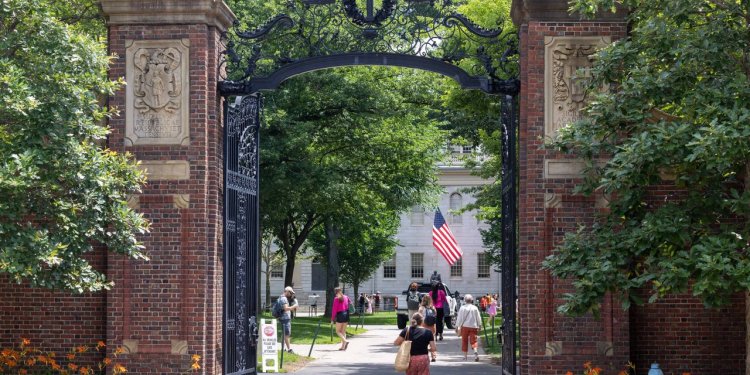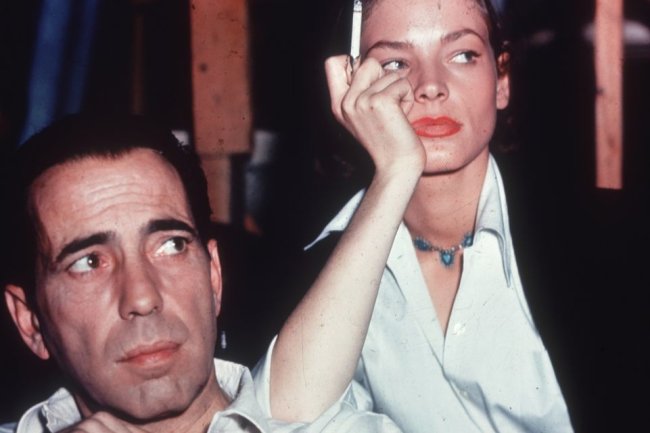Harvard Faces Federal Probe Into Donor and Legacy Admissions
Education Department launches investigation in response to civil rights complaint from Latino and Black advocacy groups Harvard University is reviewing its admissions policies and data to ensure its compliance with the Supreme Court’s decision, a spokesperson said. Photo: Scott Eisen/Getty Images By Megan Tagami Updated July 25, 2023 4:22 pm ET The U.S. Department of Education has opened an investigation into Harvard University’s use of donor and legacy admissions preferences, a month after the Supreme Court ruled the school’s use of race-conscious preferences unconstitutional. The Education Department’s Office for Civil Rights confirmed on Tuesday that it launched the investigation this week in response to a separate complaint filed last month on behalf of three Massachusetts-based organi


Harvard University is reviewing its admissions policies and data to ensure its compliance with the Supreme Court’s decision, a spokesperson said.
Photo: Scott Eisen/Getty Images
The U.S. Department of Education has opened an investigation into Harvard University’s use of donor and legacy admissions preferences, a month after the Supreme Court ruled the school’s use of race-conscious preferences unconstitutional.
The Education Department’s Office for Civil Rights confirmed on Tuesday that it launched the investigation this week in response to a separate complaint filed last month on behalf of three Massachusetts-based organizations serving communities of color. The complaint alleges that Harvard College violates Title VI of the Civil Rights Act of 1964 by giving preference to undergraduate applicants whose relatives are university alumni or donors.
Title VI prohibits programs that receive federal funds from discriminating against individuals based on race, color or national origin.
The investigation follows the Supreme Court’s decision in June to end race-conscious policies in college admissions decisions. Shortly after the ruling, Lawyers for Civil Rights, the organization representing the three community groups, filed a complaint against Harvard, alleging that the college’s use of legacy and donor-based preferences disproportionately benefits white students. The complaint also said that these applicants are six to seven times more likely to receive admissions to Harvard compared with their counterparts who don’t have ties to donors or alumni.
“At the same time that Donor and Legacy Preferences disproportionately advantage white applicants, they systematically disadvantage students of color, including Black, Latinx, and Asian Americans,” the lawyers said in the complaint.
In an emailed statement, Lawyers for Civil Rights called for the university to follow the lead of other colleges that have already ended the consideration of legacy and donor preferences in their admissions decisions.
The Supreme Court has banned colleges from using race as admission criteria, essentially ending affirmative action. California did the same 25 years ago. WSJ explains how what happened then can offer a road map for what could happen now. / Photo Illustration: Madeline Marshall
“Federal antidiscrimination law is clear: federally-funded institutions may not utilize unfair and unjustified preferences that harm qualified students of color,” the organization said in its statement.
In an emailed statement, Harvard spokesperson Nicole Rura said the university is currently reviewing its admissions policies and data to ensure its compliance with the Supreme Court’s decision, while doubling down on the university’s commitment to diversity.
“As this work continues, and moving forward, Harvard remains dedicated to opening doors to opportunity and to redoubling our efforts to encourage students from many different backgrounds to apply for admission,” Rura said.
The Office for Civil Rights confirmed the investigation but said it doesn’t comment on open cases. In its letter to Lawyers for Civil Rights, the office said the open investigation doesn’t reflect its determination of the complaint. The letter didn’t include a timeline for the investigation.
Legacy and donor preferences, derisively called affirmative action for the rich, have come under increased scrutiny since the Supreme Court decision. In recent weeks, Wesleyan University and the University of Minnesota announced that they will no longer use legacy preferences in their admissions process.
Write to Megan Tagami at [email protected]
What's Your Reaction?













